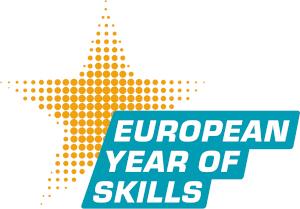With the European Year of Skills, in cooperation with the European Parliament, Member States, social partners, public and private employment services, chambers of commerce and industry, education and training providers, and workers and companies all together, the Commission proposes to give a fresh impetus to lifelong learning by:
• Promoting increased, and more effective and inclusive investment in training and upskilling to harness the full potential of the European workforce, and to support people in changing from one job to another.
• Making sure that skills are relevant for labour market needs, by also cooperating with social partners and companies.
• Matching people's aspirations and skill sets with opportunities on the job market, especially for the green and digital transition and the economic recovery. A special focus will be given to activate more people for the labour market, in particular women and young people, especially those not in education, employment or training.
• Attracting people from third countries with the skills needed by the EU, including by strengthening learning opportunities and mobility and facilitating the recognition of qualifications.
To ensure the coordination of relevant activities at national level, the Commission calls on Member States to appoint a national coordinator for the European Year of Skills.
